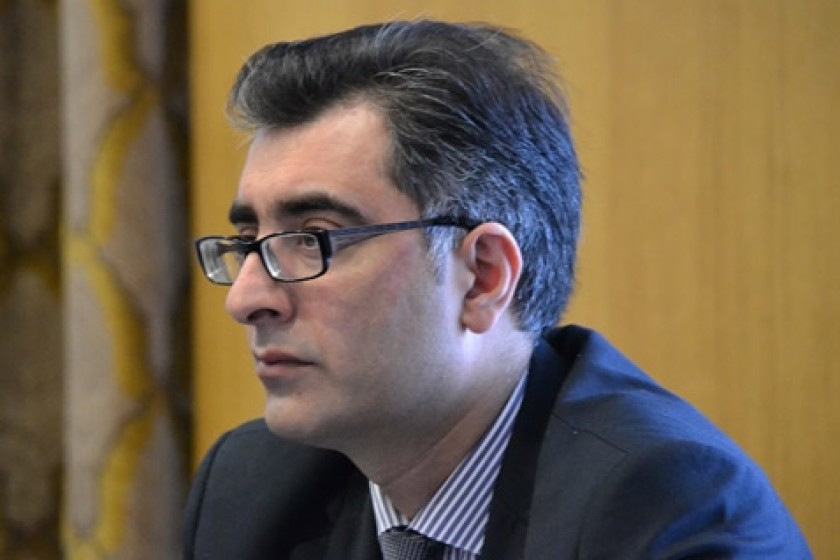
Azerbaijani Expert: Recent Presidential Election Cannot Be Considered Free and democratic
Yesterday, the Regional Research Center organized an online interview with Anar Mamedli, Chairman of Election Monitoring and Democracy Studies Center, a Baku-based nonpartisan, NGO promoting meaningful elections and the development of democratic institutions.
Mr. Mamedli also responded to the following questions posed by Hetq.
How would you rate the recent presidential elections in Azerbaijan?
As chairman of the Election Monitoring and Democracy Studies Center (EMDCS), I can base my opinion on our center’s long-term and short-term observations on the presidential elections in Azerbaijan.
Our long-term observations show that during the election period there has been no improvement regarding freedom of assembly and freedom of speech, as well as the free operation of the media.
On the contrary, since the beginning of 2013, the number of arrests and harassment due to political motives has significantly increased .During the initial stages of the electoral process, the nomination and registration of candidates was accompanied by the abuse of administrative resources by various state structures. In some cases, the media, observers and representatives of candidates were denied access to participate in the process of verifying the signatures collected. In the second phase of elections, in comparison with the 2008 presidential election, there was a greater degree of political activity. However, none of the private television stations operating in the country offered airtime to candidates and their representatives to present their election platforms, as well as to organize political debates on topical issues.
According to the Electoral Code of Azerbaijan, debates with the candidates or their representatives were only organized on public television and radio. EMDCS noted several irregularities during the opening of polling stations on Election Day. Nevertheless, the voting process was marred by serious violations (multiple voting, voter service stations in droves, allowing many voters to vote in those areas where they are not registered, etc.)
According to the reports submitted by EMDCS observers, in more than 200 polling stations the voting results were not accurately reflected in the final report and copies of the minutes were not posted in front of the building. Observers like representatives of the candidates, observers, who demanded the creation of normal conditions for the observation of the counting process, also encountered serious pressure from the leadership of the polling stations. EMDCS believes that the political situation before the elections and violations documented at all stages of the election led to a lack of fair competition – due to which the presidential election held on October 9 were marred by violations of the national legislation of Azerbaijan and international standards, Thus, they cannot be considered free and democratic.
Were any court proceedings regarding electoral fraud launched? Jamil Hasanli, the opposition candidate of The National Council of Democratic Forces spoke about widespread election fraud, and video clips purportedly showing such incidents appeared on the internet.
On October 13, Azerbaijan’s Central Electoral Commission (CEC) rejected Jamil Hasanli’s October 9 formal complaint regarding Election Day violations in the vote on October 9 on the grounds that he had supplied the court with copies of acts, not the originals.
At the same time, the law does not require notarized copies of the acts of irregularities and reports on the results of the voting. I think that Hasanli’s election headquarters may submit the original acts and re-file the complaint before October 16. In addition, one can also file a complaint with the Court of Appeals on CEC’s decision regarding the vote results, which must be approved before October 19. There will be time for this since the Constitutional Court must approve the election results within 14 days after the vote.
Chairman of the U.S. Helsinki Committee, Senator Benjamin Cardin made a critical assessment of the presidential elections in Azerbaijan. He noted that it was disappointing that Azerbaijan let another chance slip by to demonstrate its commitment to the democratic process. There were other evaluations by international observers. In your view, what impact will this have on the international image of the President of Azerbaijan?
Of course, this will have a negative impact on the reputation of the government of Azerbaijan and Aliyev. It is obvious that the third term in office will be a major factor in understanding the concept of democratic transition and the situation of human rights in Azerbaijan.
 Videos
Videos Photos
Photos




Write a comment